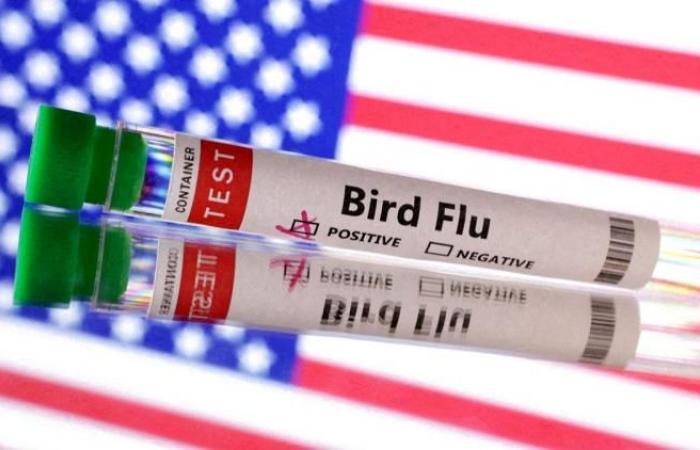A first human death linked to avian flu has been recorded in Louisiana (United States), according to an announcement made this Monday, January 6 by the state health authorities.
A death which raises fears of the start of an epidemic across the Atlantic. A man aged over 65 has died from avian flu, becoming the first human death linked to the H5N1 virus recorded in the United States, according to an announcement made on Monday by Louisiana health authorities. The latter had been contaminated by this virus via farmyard and wild birds.
The 60-year-old suffered from a respiratory infection and was in “critical condition,” according to information relayed by state health authorities last December during his hospitalization.
The investigation “did not identify other cases of H5N1 or evidence of person-to-person transmission. This patient remains the only human case of H5N1 in Louisiana,” the local Department of Health said on its website.
Based on these observations, he estimated that the risk posed by avian flu to the general public remains “low”. On the other hand, he indicated that the risk was “higher” for “people who work with birds, poultry or cows, or who are exposed to these animals as part of their leisure activities”.
Since the start of 2024, 66 cases of avian flu have been detected in humans but the majority of them were mild and linked to known contact with infected animals.
“A nasty virus that no one would like to catch”
“I’m not worried about the average citizen, but about people who are in contact with animals that we know can be infected. It’s a nasty virus that no one would like to catch,” assured Jennifer Nuzzo, professor of epidemiology at Brown University.
She stressed that if the Louisiana patient presented other pathologies, the case of a Canadian teenager hospitalized in 2024 for avian flu shows that younger and healthier people can also be seriously affected.
“Although tragic, a death from the H5N1 virus in the United States is not unexpected,” the American Centers for Disease Prevention and Control (CDC) also recalled.
“Outside the United States, more than 950 cases of H5N1 avian influenza have been reported to the World Health Organization, and about half of them resulted in death,” the CDC reported in a statement. These cases were recorded between 2003 and the end of 2024 in 24 countries, including a large number in China and Vietnam, according to a WHO document.
Avian influenza A (H5N1) first appeared in 1996, but since 2020 the number of outbreaks in birds has exploded and an increasing number of mammal species have been affected.
Fear of a virus mutation is growing
Experts have expressed their fear that this strong circulation of the virus could facilitate a mutation allowing it to be transmitted from one human to another. Some also feared that it would mix with seasonal flu and thus become more transmissible.
Genetic sequencing of the virus found in the Louisiana patient showed that it was different from the version detected in several herds of dairy cows and on poultry farms.
A small part of the virus showed genetic modifications suggesting that it may have mutated inside the body to adapt to human respiratory tract. However, this mutation is not the only one necessary to make a virus more contagious or transmissible between humans, according to experts.
As the inauguration of Donald Trump approaches, who has expressed his wish to eliminate an agency responsible for preparing for epidemic risks, the situation worries health stakeholders.






